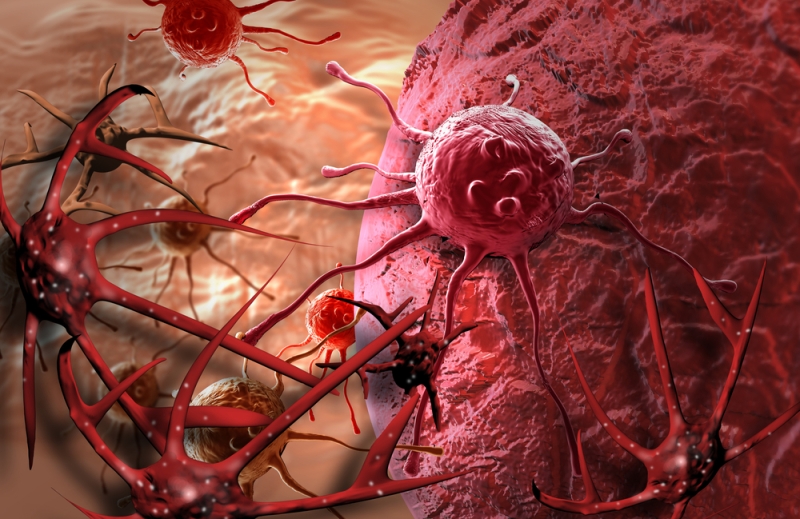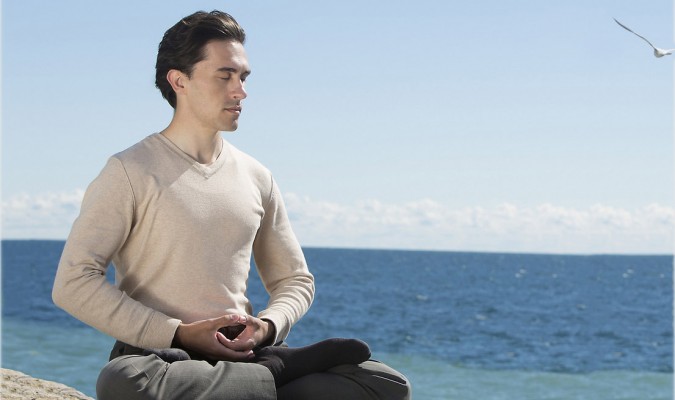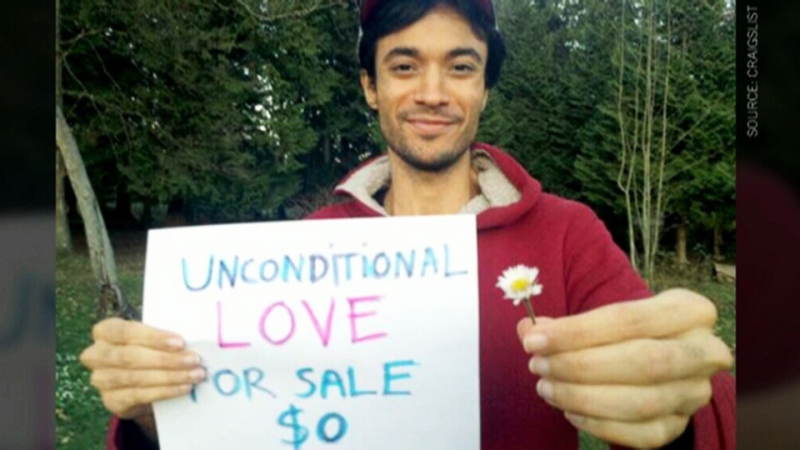By Luan Do | Epoch Times Staff
Would well-being improve if we were genuinely kinder towards one another?
Additionally, a paper by various universities titled ‘An observational cohort study on terminal cancer survivors [practising] Falun Gong in China’ has also affirmed the strong correlation between the practice of mindfulness and the state of well-being. Falun Gong is a peaceful spiritual practice that includes five sets of exercises, the last of which is meditation.
Robust investments are being made to Singapore cancer research to further develop the medical capability to fight cancer. But, there may exist great potential on the path of the intangible that is left unventured – the mind.

According to the 2015 report by American Cancer Society (ACS), one in seven deaths worldwide are caused by cancer. In Singapore, the ratio is almost one in three.
Perhaps to the bewilderment of most people, the report revealed a sombre finding from the International Agency for Research on Cancer (IARC) – the rate of people being diagnosed with cancer in developed countries is more than threefolds of that in developing countries.
Within the same year of 2012, IARC findings were in alignment with statistics from the World Health Organisation (WHO), which showed that cancer is responsible for one in four deaths from the high-income group, whereas it accounts for only one in eight deaths from the low- and middle-income groups.
The findings shed light on the significance of behavioural factors on our overall well-being.
In this light, the ACS also forecasted that there would be a substantial rise in cancer cases in developing countries by 2030 due to their tendency to adopt western lifestyles, such as smoking, poor diet and physical inactivity.
Is Cancer Preventable?
Through behavioural change, lifestyle-driven cancers are preventable.
In Singapore, the strong correlation between smoking and lung cancer was evidently illustrated in the 2015 report by Singapore’s National Registry of Diseases Office (NRDO).
According to the Ministry of Health, men are six times more likely to smoke than women. As a result, NRDO statistics reported that lung cancer accounts for one in four cancer cases in men, and one in eight cancer cases in women.
Comparison across ethnic groups has also observed that Malay residents, whose “smoking prevalence is more than double” that of their Chinese or Indian counterparts, are more susceptible to lung cancer.
Studies have shown that tobacco smoking alone caused one in five cancer deaths worldwide in 2010.
In addition, the World Cancer Research Fund has estimated that at least one fifth of cancer cases worldwide are related to obesity, physical inactivity and poor nutrition, and are therefore preventable.
Besides, the importance of health screening for early detection and removal of precancerous lesions should not be overlooked in cancer prevention.
A senior consultant cum surgical oncologist in Singapore shared with the Epoch Times that the age at which screening starts depends on the cancer type and also the person’s family history.
“For breast cancer, the recommendation is to start mammogram screening after 40; for colorectal cancer, [the recommendation] is to start colonoscopy after 50,” he added.
Beyond the Prescription
Fighting cancers takes more than a prescription; it requires genuine compassion.
An exclusive survey by the Epoch Times on Vietnamese cancer patients seeking treatment in Singapore has revealed that care and concern from Singapore’s doctors and nurses are one of the key drivers behind their decision to seek treatment here, despite recent healthcare investments in Vietnam with state-of-the-art technologies from developed countries.

“Vietnamese patients choose Singapore especially because they are treated equally,” said Ninh Duong, a Vietnamese translator, with regard to discriminative treatment that one may receive in Vietnam due to differences in personal backgrounds and, sometimes, tips given to the medical staff.
“They [Vietnamese patients] feel cared for, safe, and protected [in Singapore],” Duong added.
In Singapore, counselling platforms and social activities are readily available for cancer patients to help them cope with the emotional challenge. Furthermore, various financial schemes are also available such as Medifund from the Government and Cancer Care Funds from the Singapore Cancer Society to help patients alleviate their heavy financial burden from the treatment.
Bridging the Gap
Today, rapid scientific developments have enabled mankind to continuously discover new forefronts that were previously unknown.
Robust investments are being made to Singapore cancer research to further develop the medical capability to fight cancer. Despite the challenging economic backdrop, the National Cancer Centre Research Fund has reported a total incoming receipt of over S$14 million in 2015, which is more than double the amount received in 2014, and more than quadruple that in 2013.
That said, as science advances vigorously down the path of the tangible, there may exist great potential on the path of the intangible that is left unventured – the mind.
The practice of mindfulness has been found to be of great benefit in alleviating mental and emotional conditions associated with cancer recovery, such as anxiety, depression and insomnia.
Promotional videos are currently being displayed at the waiting area at various hospitals in Singapore to raise awareness about the benefits of meditative exercises.
Clinical trials by Oxford University have illustrated that the effectiveness of mindfulness is comparable to that of antidepressants, and in patients with multiple episodes of depression, mindfulness can reduce the recurrence rate by 40-50% compared with usual care.
Additionally, a paper by various universities titled ‘An observational cohort study on terminal cancer survivors [practising] Falun Gong in China’ has also affirmed the strong correlation between the practice of mindfulness and the state of well-being. Falun Gong is a peaceful spiritual practice that includes five sets of exercises, the last of which is meditation.
The research only included terminal cancer patients whose predicted survival is less than 12 months and whose medical information are verifiable.
In total, 152 patients were eligible, whose average onset age of cancer was 53. All patients started to practise Falun Gong after being diagnosed, or after their treatment failed. The primary cancers included lung, liver, stomach, leukaemia, oesophagus, gynaecological, pancreas, bile duct, and colorectal. The average predicted survival was 5.1 months.
Out of 152 patients, 149 were still alive, with 97% of these patients reporting complete symptoms of recovery. Their actual survival was 56 months up to the report date – a significant increase from the initial prediction. Several indexes measuring quality of life after practising Falun Gong showed significant improvement.
The paper was published in conjunction with the 2016 American Society of Clinical Oncology annual meeting in June, the largest international convention of clinical cancer and oncology research.

Is Kindness Good Medicine?
There has been a long debate between the schools of preventive medicine and curative medicine about which approach should take precedence.
While the answer is indubitably subjective, the importance of both is undeniable.
Nevertheless, it may be helpful to acknowledge that the ultimate root cause of cancer still remains an unknown, possibly because the methods adopted are highly bounded by the frontier of scientific development.
In this light, perhaps an alternative school of thought based on culture and values might offer new, valuable insight.
Here’s an uplifting story I came across on goodnewsnetwork.org.
Brice Royer, who was diagnosed with a rare type of stomach cancer, got healed after embarking on his charitable cause of starting a Gift Economy Facebook group with the motto: “The more you give, the richer you are”.
“I was selling unconditional love for zero dollars because my doctor said feeling loved and cared for is the world’s best medicine,” said Royer, as reported by CBC News in 2015.

The Canadian was declared cancer free after eleven months of “unconditional love” to others by giving donations to people in need. His doctor was astonished by the miraculous result and described the MRI results as “unexplainable by western science”.
“I’m now cancer free!! Thanks to all the love and kindness– it finally paid off! No surgery, chemo or medication!” Royer wrote to Good News Network.
“I plan to continue doing random acts of kindness to heal myself and others,” he added.
Would the state of well-being improve if individuals and societies alike could embrace high moral standards and genuine kindness towards one another?
Royer’s story might lead us to believe that kindness is good medicine.

